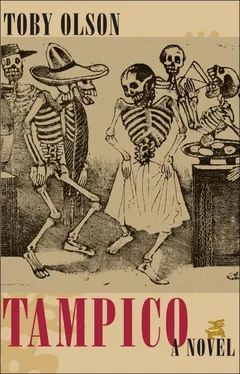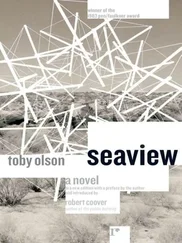“Well, then,” she said. “Are you gay?”
“No,” I said. “I don’t think so. I think it was a dirty needle.”
Her eyes blinked. “Do you do that?” she said. “I wouldn’t have thought so.”
“I don’t,” I said. “It was a binge, I guess, about a year ago.”
“That Charters matter?”
I remembered then that she’d been involved in it and had made an important diagnosis. She’d been Sara’s doctor as well as mine and must have heard of the rest there. Unless I’d told her myself. She was an easy person to confide in. Absolutely no nonsense at all, absolutely accepting.
“Yes. That was the time of it,” I said.
“Well, it’s confirmed now, just as I told you on the phone. There’s no question about it, and you’ll have to be clear about that. Your T-cell count is fine, and I couldn’t find anything else to worry about. But it’s very early. Do you have any symptoms of any kind?”
“No,” I said. “There’s nothing. But I was wondering, to be exact about it?”
She didn’t hesitate.
“Eight to eleven years, on the average. Fifteen at the outside, though there are exceptions, under 20 percent. And that’s from the time of infection.”
She loaded me up with pamphlets, even a few books, and a scratch sheet of her own devising. She’d had plenty of occasion to deal with HIV, and AIDS too, here in Provincetown, and once she’d penciled in a monthly appointment on her calendar, she told me it was bound to come down upon me before long, not infection, but the facts of the situation.
She knew a support group wouldn’t be the right thing for me, not in this town, given my past on the force, and she doubted that a psychiatrist would help, though she gave me the name and number of one.
“But you can talk to me,” she said, “Whenever. Don’t think twice,” and when we reached the outer door she touched my shoulder, then leaned in and kissed me on the cheek. “Hey,” she said, “I’m sorry,” and I knew she was watching me as I shuffled down the dark pathway to my car.
It was three days later that Warren called about Strickland. I was in the sewing room with the phone man, watching him twist wires at the jack, his unit cupped in his shoulder at his ear.
“You’ve got one,” he said, though there was no ringing. “In the kitchen.”
Warren and I had worked together on the force for many years. It was an intimate circumstance in Provincetown, just a dozen of us, plus summer cops, and we’d become good friends, both at work and away from it. We fished when we had the time, and Warren had seen me through the death of Beth Charters and the divorce, and once my mother died in Florida, leaving me just enough to pay bills for a year, and I’d quit the force to set up shop for myself, he said he’d keep his eyes open for clients, and it was through Warren I’d gotten the first one.
“Too bad,” he said. “But it’s worse for him.”
The phone was on the wall beside the sink, and I saw the egg-encrusted breakfast plate, just the one, and turned away from it. The curtains lifted and parted in a breeze at the open window, the grey day visible beyond. It had rained steadily, all morning until noon, then humid air had settled in, too heavy for the breeze to blow it out, and my shirt stuck at my collar, neck cold and clammy when I turned my head.
“When?” I said.
“At six-o-three this morning. He had clearance for Philadelphia.”
“He had his own plane?”
“Right. A new Cessna. They’re checking that now. The FAA.”
“How bad was it?”
“Not really too bad at all. He was off the end, they said. Then he just glided down to the beach. But then there was the fire. We only got his name, routinely, a few minutes ago. The chief’s been out there all morning.”
“Are you going?”
“You bet,” he said. “Right now.”
“I’ll meet you,” I said.
A white gull sat on the Cessna’s wing at the waterline. The tide had swelled to full, and the wash rode under the wing and came up over the plane’s bullet nose imbedded in the sand and left foam on the blue metal, like soap suds, in its receding. The prop was gone, or the gull might have sat there, and I saw it dip its head, then rise to its webbed feet as the tern came out of the clouds where the sun would be and clipped it and shot away. Then another came in low over the sand, and the gull opened its wings and jumped off the metal and drifted out to sea. A man stood at the top of an awkward ladder in the sand, reaching to get the leather sling around the high tail. He wore somebody else’s hat, a ludicrous straw sombrero too big for him, and the terns’ wings struck the edges as they dove, rocking and tilting it, until it was on the bridge of his nose and he had to grab the tail and drop the sling and knock the brim back up so he could see again.
“It’s a nesting area.”
Warren was beside me in a green slicker. We were back in the hummocks in beach grass. I’d asked him in the parking lot if he thought it might rain again and he said they called for it. I was wearing a light jacket only, but I’d put on a cotton sweatshirt under it. We’d driven down the single runway to the end. All the cars were parked there, and the yellow tow truck had backed up to the edge. Then we trudged through the low dunes the few hundred yards to the beach. They’d staked out the crash path, a rectangle of yellow plastic police ribbon open at the ocean end, and as we made our way around it I saw the impacted sand and torn shrubs where the plane had bounced, then, at the beach, the almost perfect trough where it had hit again and skidded to a stop. Warren touched my arm and we stepped through bearberry and dusty miller and headed off to the side for a better view. A man had crossed the beach to hold the ladder, and the terns were coming at him from the sea. He’d raised his shoulders and lowered his head to a rung, and I saw his elbows flapping, trying to ward them off.
“They like to come in out of the sun,” Warren said. “And even though it’s cloudy they’re doing that. You’re blinded then, and they can get your eyes that way, something vulnerable you know?”
“They do seem plenty pissed,” I said.
“Wouldn’t you be? It’s a whole fucking city disrupted there. This is war!”
We moved off for a few more yards, then turned and saw the Cessna’s side. It looked virginal, untouched by the crash, but for the blackened cockpit and the smoke flames on the hull behind it that seemed painted over the blue metal. The windows were opaque with soot, the plastic rippled from heat, and through the open cockpit door I could see only the outlines of the seats and instrument panel. The space was like a film negative, everything reduced to a common blackness.
“Where did they take him?” I said.
“To Boston. What was left of him.”
“Jesus. What a way to go.”
“I don’t know,” Warren said, and I realized I didn’t either. Maybe quick is better.
Back in the parking lot, we talked things over. We were standing at my car and over the hood and across the lot I could see the SAVE THE LIGHTHOUSE kiosk, a small trailer, its hitch supported on a cinder block. T-shirts blew on hangers in the breeze and card tables held stacks of coffee mugs and other paraphernalia, all embossed with the logo, a figure of the lighthouse and the keeper’s shack and the words printed below. A woman moved between the tables, securing calendars and postcards with beach rocks. The wind gusted and a T-shirt swelled as if it held a body, then lifted in the air, and I saw the woman reach up and deflate it and twist the hanger tight around the rod. I had an urge to tell Warren about the HIV, my new circumstance, but I didn’t.
“It’s nothing more than an accident, then,” I said.
Читать дальше












